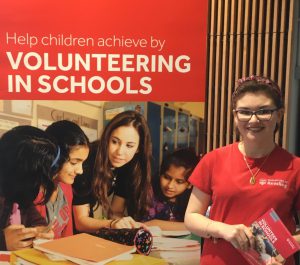Enjoying it is more important
 Did you enjoy reading as a child? If the answer is yes, your love for reading might have taken you further than you thought.
Did you enjoy reading as a child? If the answer is yes, your love for reading might have taken you further than you thought.
There have been plenty of studies demonstrating the positive impacts of reading for pleasure on the mental health, academic success and even the later economic success of children, but these benefits aren’t available to everyone.
Shockingly, statistics from 2014 found that one in five children in England cannot read well by the age of eleven. The impacts of this reach beyond the ability to read a book or do well in English classes. Research by The Reading Agency has found that students are less able to learn effectively in other subjects if they do not develop sufficient reading skills by the middle of primary school. These statistics show how the ability to read becomes absolutely vital in every aspect of a child’s academic life.
It’s not only the ability to read that is important. Children aged 10 who enjoy reading have been found to have a reading age 1.3 years above their classmates who do not. Being able to read confidently is definitely an important skill but enjoying learning to read can lead to even greater benefits.
It’s encouraging, then, that the National Literacy Trust found that 78% of primary school children in general enjoy reading (2017). Despite this, by age 10 this drops to only 35% of children.
Reading with children can be very rewarding for both you and the child. Hearing a child pronounce a word correctly that they struggled with the week before or seeing how pleased they are when they move up a reading level is fantastic. However, sometimes learning to read can become a chore or can even become a stressful experience if it begins to feel like a test. With an increasing focus on meeting targets and preparing for exams in schools, it’s easy to see how reading can become just another thing to get right or wrong.
This is where Students in Schools can come in. Having a new face in the classroom is exciting – student volunteers are like teachers but not, and this allows us to take a slightly different approach. We aren’t grading readers and we know what it’s like to make mistakes. Sharing our own experiences with children can help them feel more comfortable when reading and turn it into something to enjoy and look forward to.
Reading with children might seem like a simple thing, but its impacts are wide reaching. Taking a couple of hours out of your week to read with a child could change their life forever. If you are interested in reading with children as a part of your Students in Schools volunteering, you can find helpful tips and more information in our article here.
 ” I have volunteered in two schools and my first visits to both were pretty scary- I was excited to work with kids, but I know they can be quite harsh critics! Luckily all the staff were really welcoming and made sure I knew what I was meant to be doing. I was really grateful to them for taking the time to chat with me and I quickly learned that schools are incredibly busy places. If you’re a new volunteer I would recomend going in with an open mind, get on with the tasks you are given and look out for anything else you can do to help. I soon began to really look forward to my weekly visit”
” I have volunteered in two schools and my first visits to both were pretty scary- I was excited to work with kids, but I know they can be quite harsh critics! Luckily all the staff were really welcoming and made sure I knew what I was meant to be doing. I was really grateful to them for taking the time to chat with me and I quickly learned that schools are incredibly busy places. If you’re a new volunteer I would recomend going in with an open mind, get on with the tasks you are given and look out for anything else you can do to help. I soon began to really look forward to my weekly visit” 
 “I would tell a new volunteer to bring a smile, enthusiasm and patience with them. Don’t worry about making mistakes or having a bad experience. Sometimes children do not understand or listen to you, but it’s important not to let it get to you and not to get frustrated. This can sometimes be tricky, but the good experiences and ‘light-bulb’ moments will very soon completely make up for this” Victoria, Archaeology
“I would tell a new volunteer to bring a smile, enthusiasm and patience with them. Don’t worry about making mistakes or having a bad experience. Sometimes children do not understand or listen to you, but it’s important not to let it get to you and not to get frustrated. This can sometimes be tricky, but the good experiences and ‘light-bulb’ moments will very soon completely make up for this” Victoria, Archaeology  My name is Alice and I am a 3rd
My name is Alice and I am a 3rd